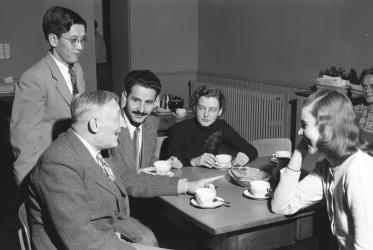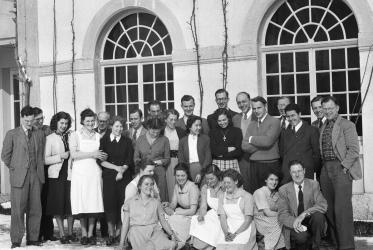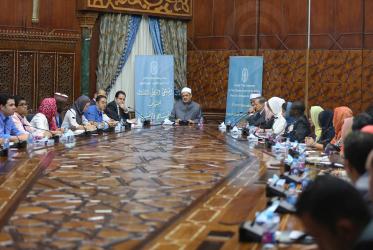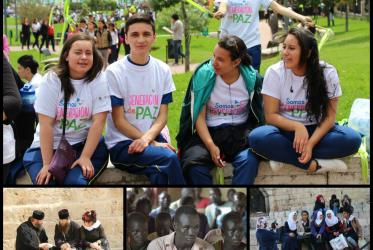Displaying 181 - 200 of 282
29 November 2016
What does ‘prudence’ mean for dialogue and peace-building?
16 November 2016
Tveit offers input at religion and development meeting
03 October 2016
Bossey anniversary commemorates 70 years of heartfelt dialogue
28 September 2016
WCC’s Bossey institute celebrates 70 years with array of events
23 September 2016
Religious leaders of many faiths talk peace in Assisi
21 September 2016
WCC general secretary reflects on peace in Palestine and Israel
20 September 2016
Bossey students celebrate graduation
23 August 2016
Seminar will address youth engagement, religion and violence
19 August 2016
Hielke Wolters: Apostle of mission strategies
01 August 2016
WCC Central Committee convenes in Trondheim, Norway
22 June 2016














